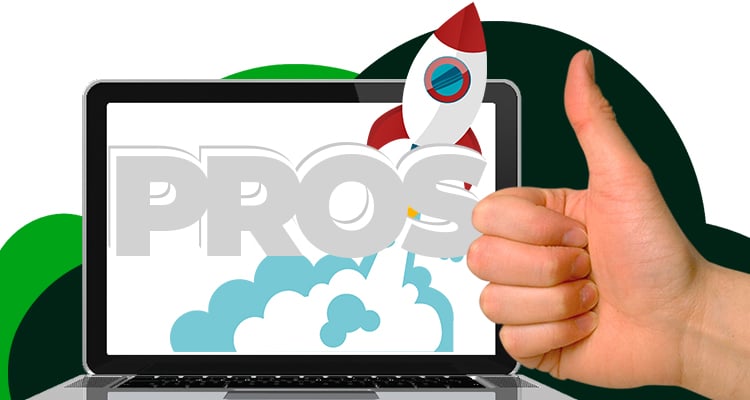Finding the right client is crucial to your remote working career. It will dictate your financial stability, quality of life, and career growth.
Somewhere along the line, you might get an offer to work an online job at a start-up.
Thus, here are 4 pros and cons of working for a start-up as a remote worker.
Pros of Working with a Start-up
There are many advantages of working for a start-up. Some of them are listed below.
Virtually No Red Tape
Have you ever experienced waiting a long time for project approval because it goes through multiple departments?
Well, you won’t experience that too often in a start-up.
Here, different departments communicate closely because of the relatively small scale.
So if you need approval or have to request for documents, they’re usually just one instant message away.
Learning Opportunities
When you work with a start-up, you often get the chance to work on diverse projects.
Because the company is just starting, you might wear multiple hats in your role.
For example, a finance manager might also handle HR payroll computation. A social media manager might also be involved in customer support.
With this, you can learn different facets of an industry. And it might come in handy as you grow your career further.
Equity Rewards
Equity rewards like stocks and stock options are usually reserved for high-level executives.
When working with start-ups, some provide bonuses in the form of equity rewards like stocks or stock options. It means you’re rewarded with a percentage of ownership in the company.
Imagine if you had a few stocks of Facebook from when they were still starting?
If you manage to work with a unicorn start-up, these equity rewards might be worth a lot in the future.
Potential for Growth
When you work with a start-up during their early phase, you have more room for career growth.
As the company expands, you might have more opportunities for a promotion. You can even end up as part of the core team in the future.
Cons of Working with a Start-up
But it’s not all rainbows and butterflies when working with a start-up. Here are some disadvantages that you may want to consider as well.
More Responsibilities
Given the lack of manpower, you might have to handle more responsibilities.
If you’re an accountant, you might focus on multiple account titles rather than just accounts receivable or payable.
Supply chain managers might handle logistics and e-commerce as well.
You’ll gain a lot of experience – but also a lot of pressure.
Lack of Structure
Start-ups might not have well-defined structures and processes, especially during the early stages.
You might need to work without guidelines. You might even have to create the SOP’s from scratch yourself.
It’s quite challenging. But if you are flexible and can adapt to the situation, it could be a welcome challenge.
Limited Resources
Start-ups operate with tight budgets and limited infrastructure.
So you have to be more resourceful and creative in finding solutions to reach your targets.
You might also get limited monetary bonuses when you work with them.
Uncertainty
Not all start-ups succeed. In fact, less than 10% survive after their first years of funding.
Start-ups can be worth the risk because you can learn a lot. And they can be a stepping stone to a thriving future career.
But what will you do if you lose your remote job at one? Or what if you find out that it’s not for you and you’d rather work with an established company?
Remote Staff offer long-term remote working career opportunities in various companies. In case as start-up folds, we can match you with other clients that need your expertise.
Sign up today and we’ll help you grow a long-term remote working career every step of the way. Cheers!











